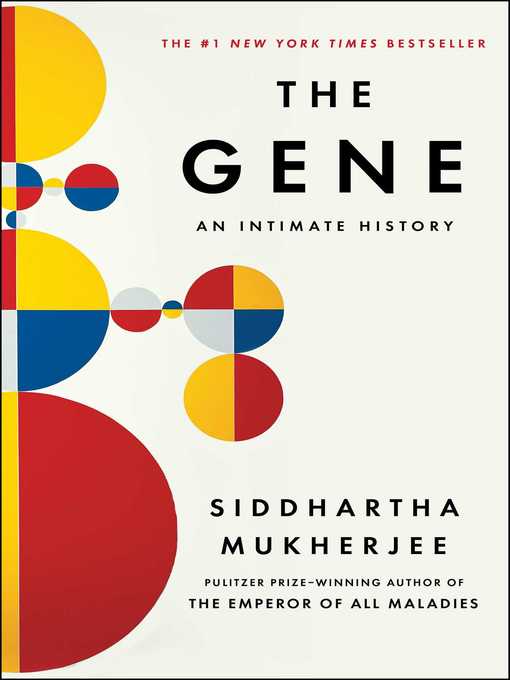
The Gene
An Intimate History
یک تاریخچه نهایی
کتاب های مرتبط
- اطلاعات
- نقد و بررسی
- دیدگاه کاربران
نقد و بررسی

Starred review from February 29, 2016
In skillful prose, Mukherjee, an oncologist and the Pulitzer Prizeâwinning author of The Emperor of All Maladies, relates the grand tale of how scientists have come to understand the role genes play in human development, behavior, and physiology. He deftly relates the basic scientific facts about the way genes are believed to function, while making clear the aspects of genetics that remain unknown. Mukherjee offers insight into both the scientific process and the sociology of science, exploring the crucial experiments that have shed light on the biochemical complexities inherent in the genome. He also examines many of the philosophical and moral quandaries that have long swirled around the study of genetics, addressing such important topics as eugenics, stem cell research, and what it means to use the composition of a person's genotype to make predictions about his or her health or behavior. Looking to the future, Mukherjee addresses prospects for medical advances in the treatment of diseases and in selectingâor actively craftingâthe genetic composition of offspring, regularly pointing out the pressing ethical considerations. Throughout, he repeatedly poses the question, "What is ânatural'?" declining to offer a single answer, in recognition that both context and change are essential. By relating familial information, Mukherjee grounds the abstract in the personal to add power and poignancy to his excellent narrative.

April 1, 2016
The development of the concept of the gene as the primary unit of heredity is comparable in terms of impact and importance to that of the atom and the byte to physics and information science, respectively, argues Mukherjee (medicine, Columbia Univ.; The Emperor of All Maladies). The author traces the history of the gene from Gregor Mendel's 19th-century pea pod experiments to the approval, in the UK, of the creation of a three-parent embryo in 2015 (egg from one mother, mitochondria from another, and sperm from a father). In graceful prose, Mukherjee combines lucid explanations of scientific concepts with the social and cultural developments at each phase in human understanding of genetics. His analogy of the atom is particularly apropos: that understanding has led to both the atomic bomb and significant energy sources and scientific breakthroughs, while increasing knowledge of heredity and genes has eugenics and Nazi extermination plans marching lockstep with synthetic insulin and potential cancer therapies. VERDICT This highly accessible and thoughtful volume on a cornerstone of modern biology will have broad appeal, amplified by the success of Mukherjee's previous work.--Evan M. Anderson, Kirkendall P.L., Ankeny, IA
Copyright 2016 Library Journal, LLC Used with permission.

























دیدگاه کاربران